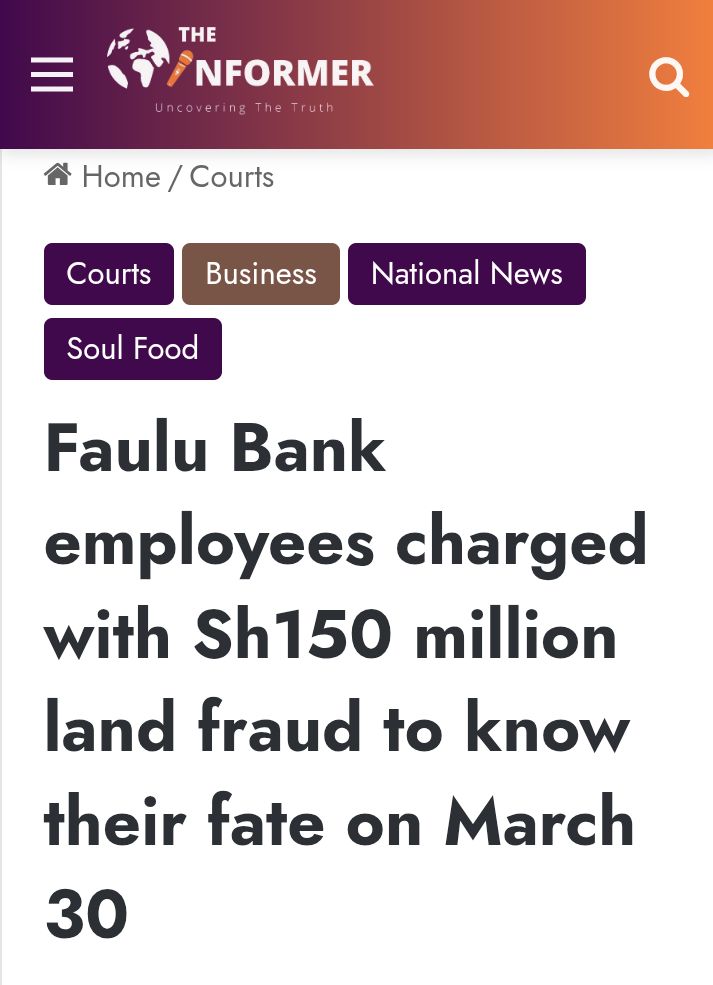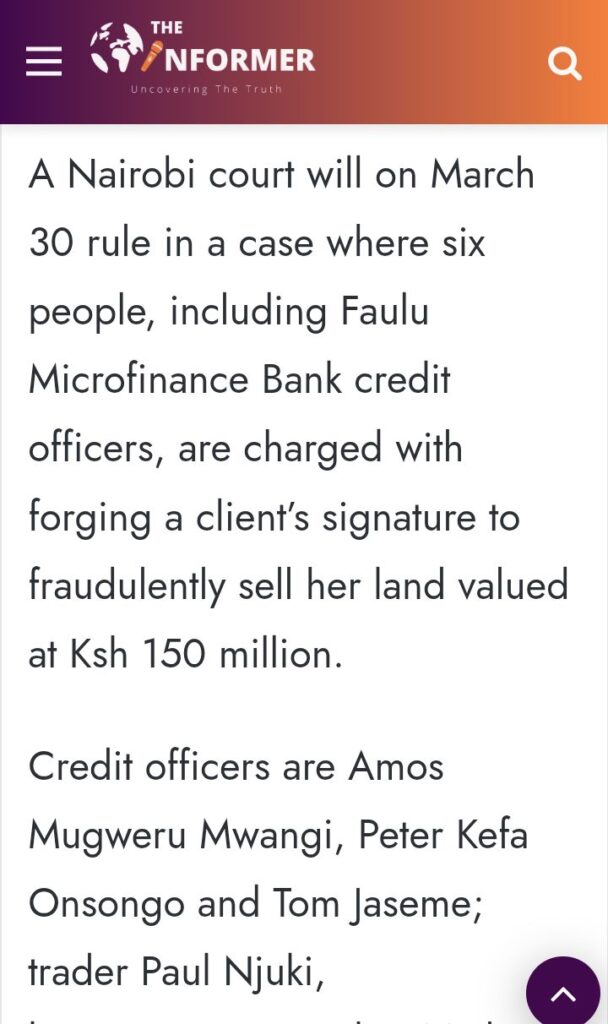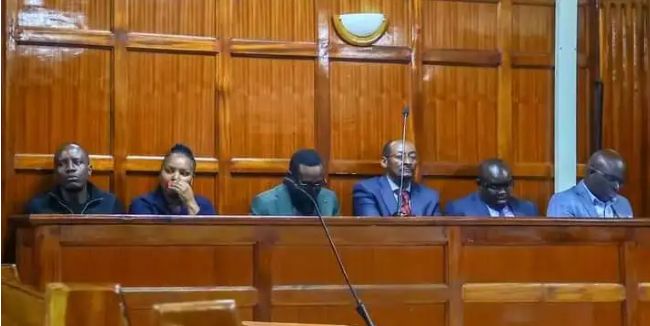A Nairobi court is set to make a decision on March 30 regarding a case that involves six individuals, including credit officers from Faulu Microfinance Bank.
These individuals are accused of forging the signature of a client in order to fraudulently sell her land, which is valued at Ksh 150 million.
The accused individuals include credit officers Amos Mugweru Mwangi, Peter Kefa Onsongo, and Tom Jaseme.
Also involved are trader Paul Njuki, businesswoman Esther Muthoni Maina, and auctioneer Robert Wamwere Maina. They are all facing charges related to conspiracy and fraud.
The prosecution claims that between May 30, 2015, and March 28, 2018, these six people worked together to defraud Alice Wanjiru Wamwea by illegally auctioning her property.

The property in question, LR NO 209/11315, is located in Huruma, Nairobi. According to the court documents, the accused individuals allegedly forged Wamwea’s signature in order to sell the land without her permission.
This case has attracted attention from the public, as land fraud is a growing problem in Kenya. Many people have fallen victim to similar fraudulent schemes, often involving forged documents and corrupt officials, along with unethical financial institutions.
These schemes not only involve fake signatures but also unethical practices where properties are sold without the rightful owner’s knowledge or consent.
If the accused individuals are found guilty, they could face severe consequences, including long prison sentences.
This case is an important one because it highlights the ongoing problem of land fraud in the country. Many people have lost their properties through dishonest means, and this case could play a key role in setting a precedent for how such cases are handled in the future.
The public is watching closely to see whether justice will be served in this case. With increasing awareness of land fraud, people are hoping that the court’s decision will send a strong message against such crimes.
It could lead to tougher penalties for those involved in fraudulent land deals, as well as a more thorough examination of the role played by financial institutions in these schemes.

The outcome of this case could have a lasting impact on how land fraud cases are dealt with in Kenya. It could help bring more attention to the issue and lead to stronger laws and regulations aimed at protecting landowners from fraud.
It is also seen as an important test of the country’s commitment to fighting corruption in both the public and private sectors.





















Add Comment